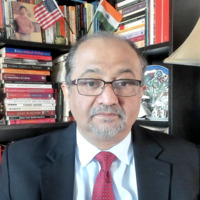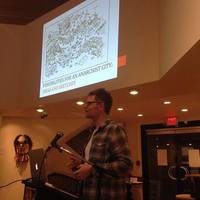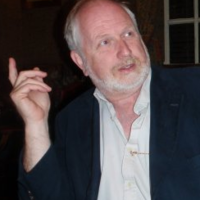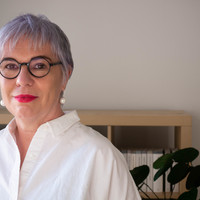
senka anastasova
Ss. Cyril and Methodius University in Skopje, Republic of Macedonia, Aesthetics and Political Philosophy, Beatrice Bain Research Group Visiting Fellow in Residence (invited status)
Dr. Senka ANASTASOVA (NEW book for Routledge coming out 2023), is a full professor of Aesthetics and Political Philosophy at the Faculty of Dramatic Arts and Humanities, Ss. Cyril and Methodius University, Skopje, and Visiting fellow (invited status) at the University of California Berkeley (United States of America), Gender and Women's Studies Department, Beatrice Bain Research Group Winner (2023). She is a philosopher, socialist feminist, theoretician, full time professor in Philosophy and Political Philosophy, doctor of philosophical sciences at Ss. Cyril & Methodius University, Skopje. Director of the Research Centre in Social Sciences and Arts. Author of the New Hypatia Feminist Documentary ''Gathering Feminist Voices in Time of Covid-19'' (together with Bonnie Mann and Brooke Burns), Cambridge University Press (2021). She is a Hypatia Journal of Feminist Philosophy member of the International Advisory Board. Since 2020 she holds the position of a associate scientific delegate at the National Institutes of Health, Bethesda, Maryland, USA. Member of the American Philosophical Association and American Political Science Association. Teaches: Philosophy, Philosophy and Aesthetics, Political Philosophy, Feminist Philosophy, Feminist Social Philosophy, Philosophy of Cinema, Fem Film Documentaries. Areas of interest: Feminist Political Economy, Philosophy of Culture/Subculture, Philosophy of Feminist Film Documentary, Aesthetics and Politics, Philosophy of Radical Cultural Studies, Socialist Feminism, Left Feminism, Methodology and Epistemology of Social Sciences, Post Colonialism, Cinematic Thinking, Political and Social Theory. Winner of the British Voya Kondic Prize for the best young philosopher (2006). Has been an associate research fellow at the University of London, Greenwich University in London, Macquarie University in Sydney, at Macedonian Academy of Science and Arts. Awarded with the British Scholarship grant for Ph.D. in London (Her Ph.D. is for the Birmingham School) She lectures worldwide. Her current philosophy books and investigations are familiar with leftist post-feminism, feminist political economy (Nancy Fraser), post-feminist politics, socialism, social reproduction, and economy motivated against capitalism, gender gaps, world bank economic forum, critical concepts of capitalist post-identity crisis, and globally related questioning (anti)capitalism.
Author of two theoretical books: Theory of Narration: Christa Wolf and Dubravka Ugresic (Political Concepts) (2007) and Theory of Popular Culture. Introduction to Cultural Studies (2012). New upcoming book: Political Narratosophy (2023)
Supervisors: Johnny Golding, Claire Colebrook, Ivan Djeparoski
Author of two theoretical books: Theory of Narration: Christa Wolf and Dubravka Ugresic (Political Concepts) (2007) and Theory of Popular Culture. Introduction to Cultural Studies (2012). New upcoming book: Political Narratosophy (2023)
Supervisors: Johnny Golding, Claire Colebrook, Ivan Djeparoski
less
Related Authors
Muqtedar Khan
University of Delaware
Richard J White
Sheffield Hallam University
Alistair McCulloch
University of South Australia
Josiah Heyman
University of Texas at El Paso (UTEP)
Margaret Somers
University of Michigan
E. Wayne Ross
University of British Columbia
Oxana Shevel
Tufts University
Johnna Montgomerie
Goldsmiths, University of London
Andrea Peto
Central European University
Maya Haber
Duquesne University
InterestsView All (239)










Uploads
Papers by senka anastasova
The collection focuses on Dunayevskaya’s ‘intersectional’ Marxist feminism. Dunayevskaya did not use this term herself, but she nonetheless engaged with intersectional questions and dialectics of history throughout her lifetime. The collection develops specific aspects of her work that explore intersectional feminism under the influence of Black struggles in the US and Africa, the revolutionary humanism of Frantz Fanon, and philosophies of revolution and revolutionary subjects. They also explore the unity of idealism and materialism and the dialectical relationship between practice and theory (influenced by Rosa Luxemburg and Gloria E. Anzaldúa), discussing women in movements for change (such as Black Lives Matter, the Zapatistas, Rojava, Idle No More). Ndina Kitonga’s essay discusses revolutionary politics beyond class reductionism and directed towards the creation of human society. The collection shows that Dunayevskaya’s tendency towards intersectionality and her philosophy of freedom was developed in her dialogues with C.L.R. James and Grace Lee Boggs, through her philosophical correspondence with Herbert Marcuse about Hegel, Marx and dialectics, in her interest in socialist humanist tendencies in Eastern Europe and Africa, and in her correspondence with Erich Fromm on his Marx’s Concept of Man, where Dunayevskaya set out her Marxist-humanist understanding of Maoism and Guevarism.
https://www.cambridge.org/core/journals/hypatia/gathering-feminist-voices-in-the-time-of-covid-19?fbclid=IwAR3ma9S_VSOpAddearmdUOyuMDlhutDVbnZrCs_FGi7laPjoVNu8prX4Sw4
The collection focuses on Dunayevskaya’s ‘intersectional’ Marxist feminism. Dunayevskaya did not use this term herself, but she nonetheless engaged with intersectional questions and dialectics of history throughout her lifetime. The collection develops specific aspects of her work that explore intersectional feminism under the influence of Black struggles in the US and Africa, the revolutionary humanism of Frantz Fanon, and philosophies of revolution and revolutionary subjects. They also explore the unity of idealism and materialism and the dialectical relationship between practice and theory (influenced by Rosa Luxemburg and Gloria E. Anzaldúa), discussing women in movements for change (such as Black Lives Matter, the Zapatistas, Rojava, Idle No More). Ndina Kitonga’s essay discusses revolutionary politics beyond class reductionism and directed towards the creation of human society. The collection shows that Dunayevskaya’s tendency towards intersectionality and her philosophy of freedom was developed in her dialogues with C.L.R. James and Grace Lee Boggs, through her philosophical correspondence with Herbert Marcuse about Hegel, Marx and dialectics, in her interest in socialist humanist tendencies in Eastern Europe and Africa, and in her correspondence with Erich Fromm on his Marx’s Concept of Man, where Dunayevskaya set out her Marxist-humanist understanding of Maoism and Guevarism.
https://www.cambridge.org/core/journals/hypatia/gathering-feminist-voices-in-the-time-of-covid-19?fbclid=IwAR3ma9S_VSOpAddearmdUOyuMDlhutDVbnZrCs_FGi7laPjoVNu8prX4Sw4